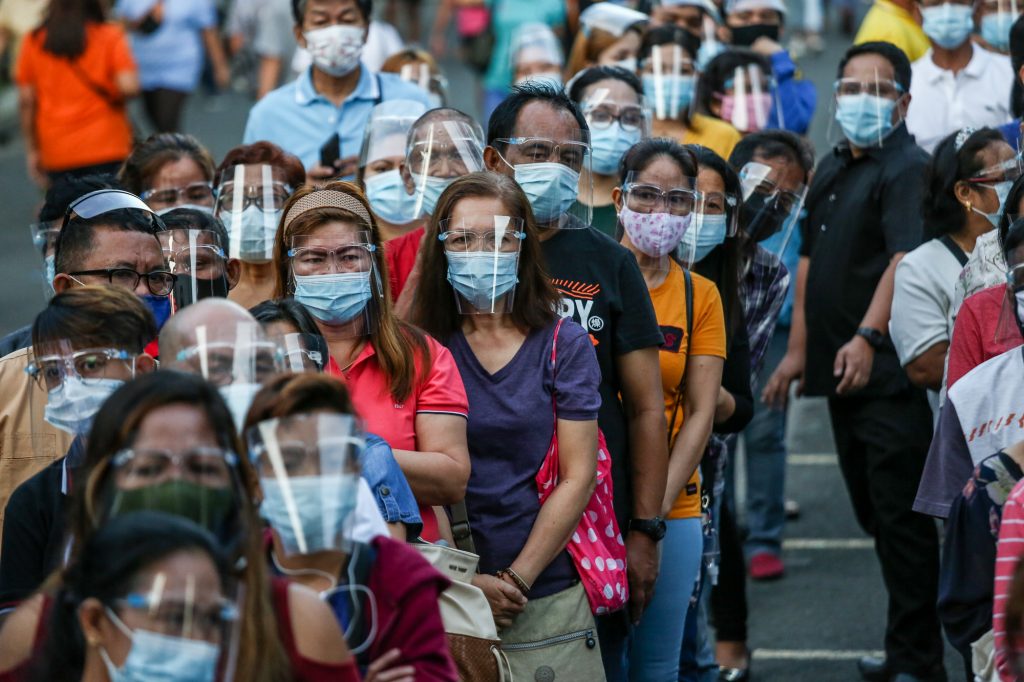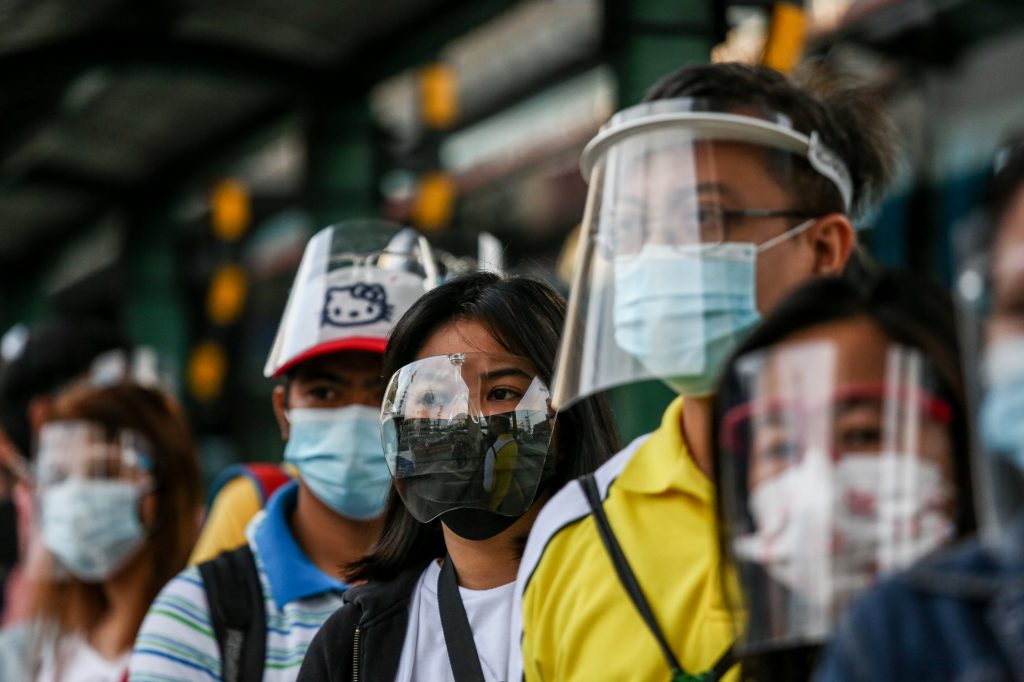
The number of COVID-19 cases in the Philippines continued to rise this week with an additional 1,414 cases reported on Tuesday, February 23, pushing the country’s total to 564,865.
In its daily bulletin, the Department of Health reported that the number of active cases is now at 29,817, comprising 5.3 percent of total infections.
Of the active cases, 88.4 percent are mild, 5.7 percent are asymptomatic, 2.6 percent are critical, 2.5 percent are severe, and 0.84 percent are moderate cases.
There were 72 new recoveries reported, bringing the number of survivors to 522,941.
There were 16 new fatalities recorded, bring the number of deaths to 12,107.
On Sunday, the Health department reported 18 more cases of the more contagious UK variant of the new coronavirus in the Philippines, bringing the total to 62.
In the central Philippines, two lay workers in the Archdiocese of Cebu tested positive for COVID-19, five days after Archbishop Jose Palma of Cebu was hospitalized for the disease.
The two workers were reported to be asymptomatic of the disease and have been placed in isolation.
Archbishop Palma and retired Cebu Auxiliary Bishop Antonio Rañola remained at the Perpetual Succour Hospital but their condition was already stable, said Monsignor Joseph Tan, the archdiocese’s spokesman.
“The archbishop is still experiencing some fatigue every now and then but his coughing has stopped, while Bishop Rañola is still experiencing coughing but is no longer experiencing fatigue,” he said.

Health restrictions remain in Metro Manila
Philippine President Rodrigo Duterte has announced that the current level of coronavirus restrictions in the capital Manila will remain until mass vaccinations start.
The Philippines, among the fastest growing economies in Asia before the pandemic, saw its gross domestic product slump by a record 9.5 percent in 2020, as one of the world’s longest and strictest COVID-19 lockdowns shuttered thousands of businesses and left millions out of work.
“The chief executive recognizes the importance of reopening the economy and its impact on people’s livelihoods. However, the president gives higher premium to public health and safety,” said government spokesman Harry Roque.
The restrictions in Manila, the epicenter of the Philippine epidemic, were set to end this month but will be extended until the mass vaccination drive is underway.
Roque said that would kick off with 600,000 doses of Sinovac Biotech vaccines donated by China, which should arrive later this month.
The Philippines has been talking to seven vaccine makers to try to ensure sufficient supplies for more than two-thirds of its 108 million population.
Its Food and Drug Administration on Monday granted emergency use authorisation for the Sinovac vaccine, CoronaVac.
The national capital, an urban sprawl of 16 cities accounting for 40 percent of the country’s economic output, has been under partial curbs since August, limiting the operating capacity of businesses and public transport.
Face-to-face school and university classes are also prohibited.
With more than 563,000 cases and nearly 12,100 deaths, the Philippines has the second highest COVID-19 infections and casualties in Southeast Asia, next to Indonesia. – with a report from Reuters
Source: Licas Philippines
0 Comments